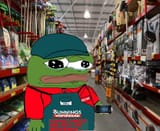Anonymous
7/20/2025, 10:27:10 PM No.17858539
From the Marxist POV, what actually is alienation and why is it bad?
I understand that under capitalism the proletariat essentially becomes production tools, which alienates them from their species-being, as they have no other choice given the necessity of selling their labor to live on. But isn't that the exact same process that the bourgeoisie operates in?
I mean, the bourgeoisie still needs money to feed itself, so the end goal is precisely the same, isn't it?
>the bourgeoisie can just exploit others' labor without doing anything
Right, but then why are they ontologically bad? The proletariat will still keep working for his own need in the end. You can argue that the bourgeoisie exploits him because he has no other choice than to work, but that won't fix his transmutation of labor power into goods, whether he owns the factory or not. Maybe I'm wrong, but it feels to me that alienation just leads to social democracy: a system where the worker can choose where he sells his labor—to himself, to a cooperative, or to one individual.
>the materialist dialectic will eventually make all workers work for their own needs because it's the rational thing to do
In this case, the bourgeoisie isn't bad but merely individuals who managed to seize an opportunity. Furthermore, if workers will rationally come to this own conclusion, then why even both with a socialist revolution ? I guess you could argue that it's precisely about making the workers aware in a sense of their potential but again, this only seems to bring towards a social-democracy, not a marxist-x'ism' revolution.
Thoughts ?
I understand that under capitalism the proletariat essentially becomes production tools, which alienates them from their species-being, as they have no other choice given the necessity of selling their labor to live on. But isn't that the exact same process that the bourgeoisie operates in?
I mean, the bourgeoisie still needs money to feed itself, so the end goal is precisely the same, isn't it?
>the bourgeoisie can just exploit others' labor without doing anything
Right, but then why are they ontologically bad? The proletariat will still keep working for his own need in the end. You can argue that the bourgeoisie exploits him because he has no other choice than to work, but that won't fix his transmutation of labor power into goods, whether he owns the factory or not. Maybe I'm wrong, but it feels to me that alienation just leads to social democracy: a system where the worker can choose where he sells his labor—to himself, to a cooperative, or to one individual.
>the materialist dialectic will eventually make all workers work for their own needs because it's the rational thing to do
In this case, the bourgeoisie isn't bad but merely individuals who managed to seize an opportunity. Furthermore, if workers will rationally come to this own conclusion, then why even both with a socialist revolution ? I guess you could argue that it's precisely about making the workers aware in a sense of their potential but again, this only seems to bring towards a social-democracy, not a marxist-x'ism' revolution.
Thoughts ?
Replies:

